Bok choy meets black dirt
On a half-acre, the Asian locavore movement takes root
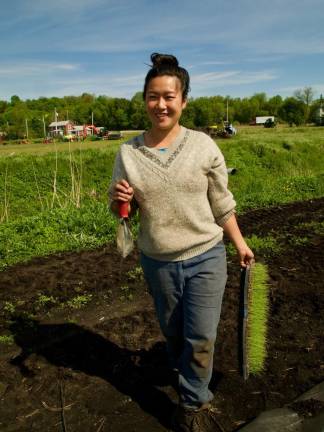
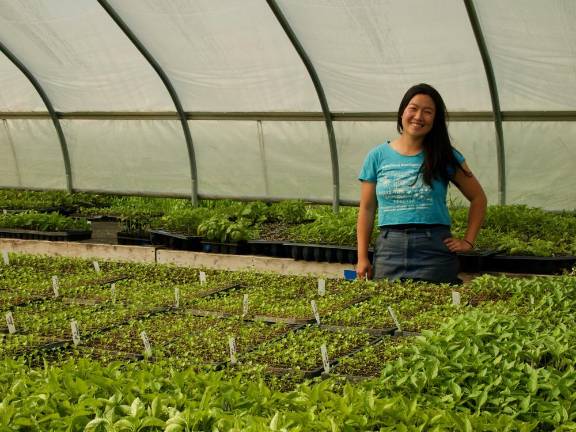
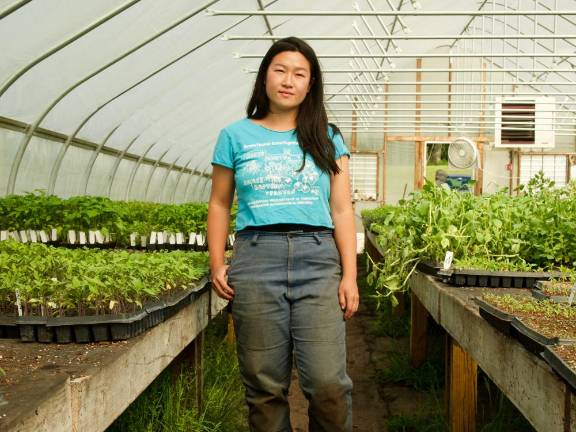
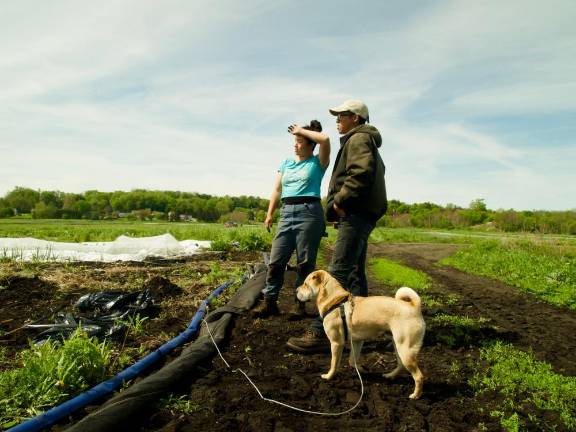
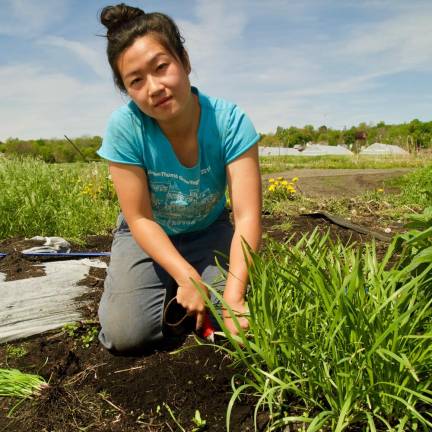
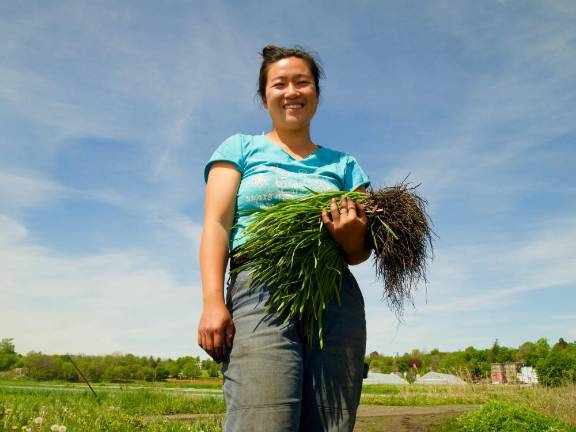
“When I first got here, I was amazed,” said farmer Christina Chan. “Oh, it really is black dirt. It’s not a misnomer.” Chan is the founder of Choy Division, a half-acre farm in the black dirt of Chester, NY focused on growing East Asian heritage crops using regenerative agricultural techniques. “It’s so beautiful, but as I worked it, holy s***, there are a lot of weeds.”
Starting her own farm in 2020 was not Chan’s original game plan. Newly arrived from a California-based mentorship with a Korean farmer, Chan began last year as an apprentice at the adjacent farm Dig Acres, a 12-acre plot of black dirt that pumps out thousands of pounds of vegetables a week destined for restaurants in the city. She was eager to work alongside her mentor, Millennial farmer Larry Tse. She knew she wanted to work with another Asian farmer. “If I have a question about growing [bok choy], what it’s supposed to taste like, look like, what are the desirable qualities, those are already known,” she said, “because we have that shared language and background.”
Choosing an apprenticeship was also about making sure her identity stayed hers. Rather than being a token of diversity, she is part of a rising tide of young farmers from diverse backgrounds who are recognizing and championing the value in their identities, for themselves. As a native New Yorker and second-generation Chinese-American, Chan had often felt torn between being American and being Chinese. Sustainably growing Asian vegetables has been a way of reconnecting the two halves of herself, not only tethering her to her community but also filling a massive void in the foodscape.
New York City has the largest Chinese population outside of Asia, “and no matter what income level you are, vegetables are such a huge part of Asian cooking,” said Chan. So where is the Chinese locavore movement? “A big part of what I’m doing is addressing the fact that there is no, or very small amounts of, organic and local Asian produce.”
When Chan was furloughed at the start of the pandemic, change brought choices. Accelerating her timeline, she struck out on her own, taking over a half-acre of black dirt on which to cultivate gai lan, bok choy, chong gak, daikon radish, bitter melon, Thai basil, chili peppers, chamoe melon, and kabocha squash. She christened her farm Choy Division, a mash-up of the Chinese word for vegetable and the English rock band Joy Division.
Along with Dig Acres, Choy Division is part of the Chester Agricultural Center, a nonprofit farm hub dedicated to preserving black dirt and making it available to organic farmers just starting out. That’s good news, since it means she still gets to work alongside her mentor Tse, sharing equipment, knowledge and work.
The day I visited, Tse had just prepared three 250-foot beds in the beautiful black dirt fields. Chan, her shar pei-pug mix pup Momo and I were starting to transplant garlic chives. We moved down the row, knees and hands quickly blackened by the powdery soil.
“For a long time, it was hard to see the forest through the trees, hustling every day,” said Chan, of her first season. “It wasn’t really until the end of the season, when the frost was about to come and I was like, ‘Oh everything’s gonna die,’ that was the first time I think I really felt, not just connected, but took a chance to really appreciate everything that the land had given me.”
This year, after doubling her CSA enterprise to 35 shares and experimenting with wholesale, Chan feels better about the season ahead. She’s had more time to plan and has a deeper understanding of her land, “when certain weeds are going to come up, what it’s like when it rains, the topography.” But as a young farmer and relative newbie to the ultra-fertile black dirt, humility is a constant companion. “You can’t just show up and think you know everything,” she said. “Getting to know the land is also getting to know the people who have worked it for a long time.”
Appreciation for the gifts of the land has bred in Chan the desire to pay it forward. “Locally grown, nutrient-dense and culturally relevant foods are a right, not a privilege,” she said. This year, she is fundraising for solidarity shares: CSA shares paid for by donations and given, free of charge, to anyone who needs them, no questions asked. Participation has been an issue though, so she wants to make sure people are aware of the option.
“I don’t know if this would have worked if I tried it 10 years ago,” said Chan. “But now there’s a younger Asian community who are willing to pay this premium because they understand the work you do is highlighting our existence in this country.”
For starting farmers like Chan, the first few years are financially vulnerable ones, with high rates of burnout. “Being part of two incubator programs allows me a lot of room to dream big and take chances,” she said, acknowledging the crucial cushion of support she receives from Dig Acres and the Glynwood Center for Regional Food and Farming. “I’m much more willing to be political,” she said, “to be more aggressive in how I market. It allows me to be vocal.”